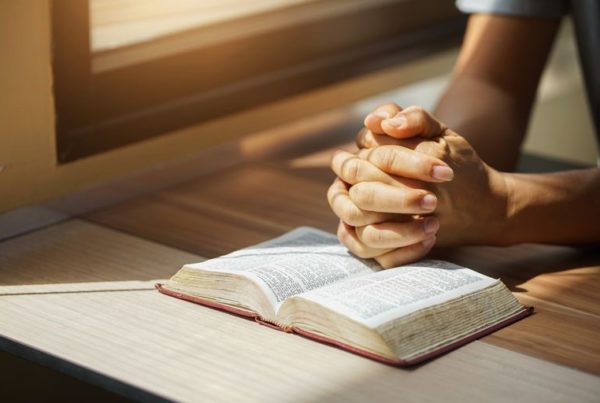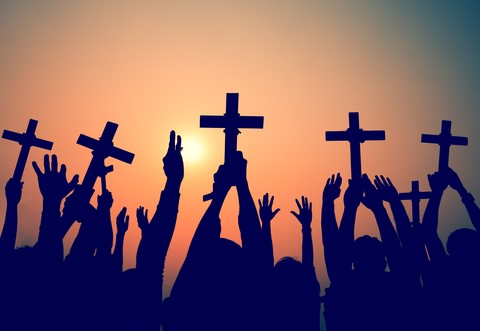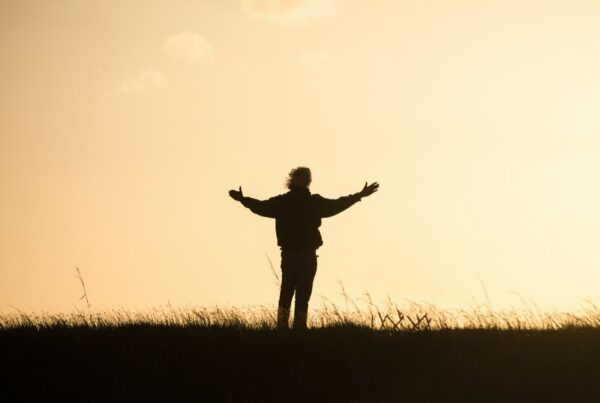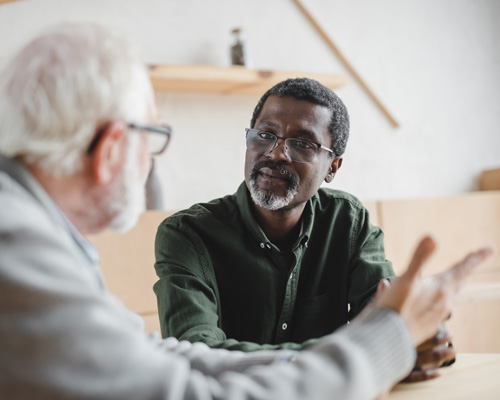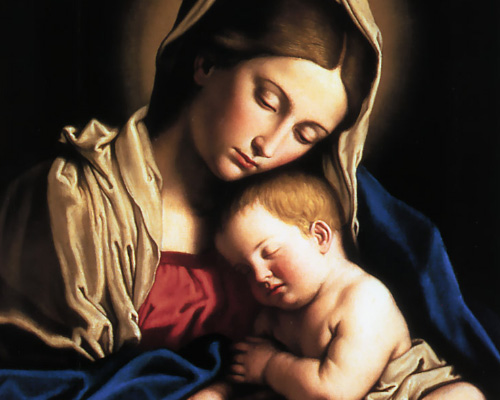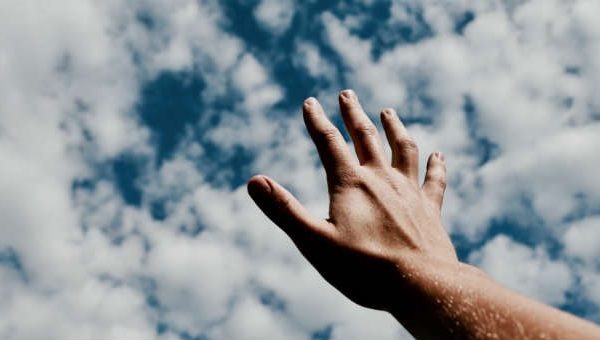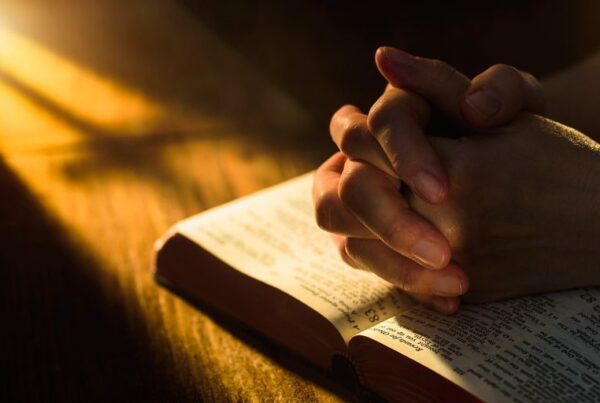Led by Pastor Gregory Johnson, Co-founder of AUHS
Attendees sat in a circle and were given a list of passages from both the Old and New Testament of the Holy Bible. Each attendee took a turn to read each passage out loud and shared what each excerpt meant to him or her on a personal, professional and spiritual level.
We often travel to places. Going from here then to there
Not so much looking, talking but helping. To show we truly care
We at times miss the messages, “The Word,” God speaks along “The Way
Truly, I know it would be well for us. If we could stop long enough to pray
“On the Side of the Road”
Sometimes we are meant to be in a certain place and at a certain time but we are so busy that we forget to speak about God or speak words of love and encouragement to people who need it the most, according to Dr. Kim Dang (Hon.), the Founder of AUHS.
“We are all so busy with our lives going here and there that a lot of times we miss the opportunity to really share the word of God to others,” Dr. Dang said, “We’re so busy that we miss the opportunity to speak words of encouragement to people that we meet along the way. Sometimes you are meant to be there and you don’t even know it.”
You never know when you are going to make a difference in another person’s life which is why we, as Christians, need to be proactive in reaching out to people.
“Maybe the person who you are meant to talk to needs you to give them an encouraging word or an opportunity to change their perspective,” Dr. Dang said, “Most of the time we miss seeing that because we are only thinking of what we are dealing with today. We only think about what we have to do for ourselves and the people we love.”
Sometimes we do not mean to be selfish but we think about ourselves more than we do about others. We worry about ourselves and our family so much that we overlook the people that are around us.
“We don’t think about the people we meet in the supermarket, we don’t think about what they’re going through, we don’t think about why can’t they pay for their food,” Dr. Dang said, “We don’t think about them because we’re thinking about ourselves. If you stop long enough to give someone a word of encouragement, to show them that you also care about them and not just about yourself, it can mean a lot to that person. A lot of times we think what we do for someone else is not a big deal but for that person, it is.”
God is always guiding us, using us as instruments to bring others closer to Christ. Sometimes the best thing you can do to fulfill God’s will is to listen.
“Sometimes you just have to listen instead of talk,” Said Dr. Bobbie Carter, an AUHS Nursing Faculty, member, “You don’t always have to respond and God just wants you to listen to what He wants you to do. If you just listen to Him, He’ll tell you exactly what you need to do.”
Hai Luong, an AUHS Admissions Coordinator, shared how he was listening to a Christian radio show on his way to work that morning and the host was talking about Billy Sunday who was a professional baseball player and great Evangelist.
“When Billy was a young Christian, there was someone who gave him some advice. That person said, ‘Billy if you do this, nobody will accuse you of being a backslider. Spend 15 minutes each day to listen to God, 15 minutes to talk to God, and another 15 minutes to share God with other people.’”
It is all a matter of listening to God. The students, faculty, and staff at AUHS are able to listen to God on a larger scale because of the university, according to Pastor Johnson.
“Don’t talk to a student without actually listening to the student. Don’t watch a student going through something and not pray for that student. Don’t watch a student struggle and not cry out to God for them. That is not us,” Pastor Johnson said, “The more do that, the more powerful we become, the more revenue we have, the more we can do for our community, and the more we can do for each other. Everything that we do is connected to listening to God and responding.”
Pastor Johnson shared a story of how he was driving to AUHS and while he was driving along Walnut Street, he saw an industrial complex on the side of the road.
“So for whatever reason, because I try to listen to God, I go inside. The place I go into is an engineering place,” Pastor Johnson said, “I asked, ‘Do you do environmental stuff?’ and ‘Do you do labs?’ They said, ‘I only do labs.’ It wasn’t where I was supposed to go.”
Pastor Johnson left and drove further up the road and saw a bicycle shop.
“I like bikes, so maybe I’m supposed to go to the bike shop but it was closed,” Pastor Johnson said, “As I’m getting into my car, I see another place that’s called ‘B&D’ and it’s some sort of engineering business.”
Pastor Johnson entered B&D and found two men watching a video. He waited patiently and asked them, “Do you guys do engineering on small parts?” and one of the men replied, “Yeah. Let me get to you after I finish watching this video.”
“A part of me said, ‘I should leave because this is not where I’m supposed to be.’ But the other part of me said, ‘Stay.’ So I stayed,” Pastor Johnson said.
After the two men finished watching their video, one of the men went to Pastor Johnson and asked how he could help him. Pastor Johnson said, “I just want to find out what you do.” The man replied, “Well, we make parts for aerospace industry and for the military.” Pastor Johnson asked if the business made small parts, if they made long runs or short runs, and if they ever made medical devices.
“Generally, if you see someone in the corner of your eye, you are supposed to talk to that person. I don’t care if you see them in the supermarket, I don’t care if you see them in line, you’re supposed to talk to that person,” Pastor Johnson said, “I was trying to relate whatever God has me there for with what we do here at AUHS. So I’m thinking about how I’m connecting this place with what I do.”
Pastor Johnson thought that perhaps B&D is connected to AUHS’ clinical research. Maybe AUHS could make some small medical devices which could be sold to pharmaceutical companies. The employee from B&D said they could not make medical devices, only individual parts. Pastor Johnson then talked to him about AUHS and then they begin talking about the man’s son, Nathan.
“Nathan is an interesting kid because he has emotional and mental health issues. This guy doesn’t know me. I’m standing there and we’re talking about his son,” Pastor Johnson said, “And so I said, ‘Talk to UC Irvine Medical company. I know some people there. They’re really good.’ Then I said, ‘What kind of medication is he taking?’ He tells me the medication. I said, ‘I’ll have my pharmacist check on it for you.’”
The man opened up to Pastor Johnson and talked about his life.
“The guy is 70-years-old. We started talking about his journey. He was talking about how he was wild. He was talking about how he was doing drugs. He was talking about how he owns his own company. He was talking about how he was messing up and then one day he was born again,” Pastor Johnson said “The next thing I know, we’re standing in the middle his shop praying for his son, Nathan. Then he asks me, ‘What time is church on Sunday?’ ‘What’s the address?’ ‘Can I bring Nathan?’”
Pastor Johnson explained that everything we do is connected to God.
“There are so many people that we meet on the side of the road, there are so many people that we encounter along the way, and we have such power,” Pastor Johnson said, “Everyone in this room has such an anointing in their life. If you exercise anointing others, you will break strongholds, you will bring down walls, you will break off people’s chains, you will open up people, you will inspire people, and you will make a difference in people’s lives.”
But in order to help reach out and transform others, we must answer the Holy Spirit.
“Be cognizant of the Spirit because there are things that you have to do while you’re traveling that is along the way,” Pastor Johnson said.
What We Do- The Good Samaritan
What good do all these things matter if we fail to consider what is beheld along “They Way.” For nothing is as precious to God as what we do rather than what we say.
Luke 10: 29-34 “A man was going down from Jerusalem to Jericho, when he was attacked by robbers. They stripped him of his clothes, beat him and went away, leaving him half dead. A priest happened to be going down the same road, and when he saw the man, he passed y on the other side. So too, a Levite, when he came to the place and saw him, passed by on the other side. But a Samaritan, as he traveled, came where the man was; and when he saw him, he took pity on him. He went to him and bandaged his wounds, pouring oil and wine. Then he put the man on his own donkey, brought him to an inn and took care of him.
If someone is in pain or in need, God does not want us to leave that person behind. There are moments in our life where we are meant to help others.
“We all kind of focus on our own journey and we become so blinded with tunnel vision that and we don’t take into consideration the people around us that may be part of our journey,” said Stephanie Lien, ,the AUHS Librarian, “We choose to ignore others when we really shouldn’t.”
The moral of the story about the good samaritan is that God looks for people who are willing to help people who are suffering, according to Dr. Mok Chong, the AUHS Dean of General Education.
“In order for us to be a good samaritan, we really need to have the heart to do it,” Dr. Chong said, “Our mission as a university definitely reflects on the moral obligations to help others and it’s not easy. But we always have to keep doing the right thing.”
You need to have good intentions when you are helping others. Just like the good samaritan, we should not expect anything in return when doing a good deed.
“The reality is that anytime you and I do what God asks us to do, He will take care of the other stuff. Numerically, do as much as you can because the hour will come when you cannot work,” Pastor Johnson said, “So you have to be aggressive about the work because there are so many people in the world who are lost. Not everyone is like us in this room. Everyone does not have the liberty, everyone does not have have the support, everyone has not survived the crap that you and I survived.”
If God puts someone in front of you, it’s because he wants you to do something for that person. That person should not leave your presence without an apparent change, according to Pastor Johnson.
“You should feel it, you should know it, you should sense it,” Pastor Johnson said, “It doesn’t take long.”
Always remember that everything in life happens for a reason and God knows what is best for you. It is all a matter of perspective.
“It’s really coming back to recognizing who you are. If you change your perspective then you can free yourself from disparaging the things God has given you,” Pastor Johnson said, “If you disparage what God has given you, you will not get the next layer of blessings.”
Pastor Johnson explained how God’s blessings were like the layers of a cake.
“There’s a lot of layers in the cakes that He wants to give you. You can get a single-layer cake, a double-layer cake, or a triple-layer cake. You can get layers and layers of blessings but if you don’t appreciate the layer that you have right now, you are apt not to get to the next layer,” Pastor Johnson said.
Never take your blessings for granted.
“Perspective is really important because regardless of what you think, we are blessed. There are people out there who really can tell you how it feels to not to have anything. They do not to have a house, they do not to have a home, they do not to have a job, they do not to have food, they do not to have friends, and they do not have a family,” Pastor Johnson said, “We are blessed.”
Who Do We Help- The Abandoned
There may well be needs you yourself may have. An urgency that presses drives you as you go along the road. But then be mindful, to stop, to consider, to help. You have no idea what your generosity may hold.
1 Samuel 30: 9-20 David and the six hundred men with him came to the Besor Valley, where some stayed behind. Two hundred of them were too exhausted to cross the valley, but David and the other four hundred continued the pursuit.They found an Egyptian in a field and brought him to David. They gave him water to drink and food to eat- part of a cake of pressed figs and two cakes of raisins. He ate and was revived, for he had not eaten any food or drunk any water for three days and three nights. David asked him, “Who do you belong to? Where do you come from?” He said, “I am an Egyptian, the slave of an Amalekite. My master abandoned me when I became ill three days ago. We raided the Negev of the Kerethites, some territory belonging to Judah and the Negev of Caleb. And we burned Ziklag.” David asked him, “Can you lead me down to this raiding party?” He answered, “Swear to me before God that you will not kill me or hand me over to my master, and I will take you down to them.” He led David down, and there they were, scattered over the countryside, eating, drinking and reveling because of the great amount of plunder they had taken from the land of the Philistines and from Judah. David fought them from dusk until the evening of the next day, and none of them got away, except four hundred young men who rode off on camels and fled. David recovered everything the Amalekites had taken, including his two wives. Nothing was missing: young or old, boy or girl, plunder or anything else they had taken. David brought everything back. He took all the flocks and herds, and his men drove them ahead of the other livestock, saying, “This is David’s plunder.”
We must give without expecting anything in return but we must also understand our reasons for giving to others.
“Doing good deeds is not just saying them, but to also understand the reason for your generosity and reflect on how important it is to give to the person that is receiving it,” said Amarri Sander, an AUHS Student Success Coordinator.
Carlet Lacno, the Accountant for AUHS, shared how she had unknowingly earned the trust of student who attended the university. She did not know he was a nursing student at AUHS until she saw him on campus.
“So I started to talking to the student and for some reason, he listened to my advice. One day he said, ‘My mom and my dad are always on my case.’ I said, ‘Okay, I’ll take care of it.’ I talked to the parents and I said, ‘You better stop hounding him,’” Lacno said.
Children usually do not listen to their parents and will listen to non-relatives instead, according to Lacno. The student thanked Lacno for talking to his parents because when they stopped “hounding him,” He began doing really well in school and plans to graduate from AUHS this year. The parents even told Lacno that there was a big difference in his grades after he began talking to Carlet.
“I texted the parents, ‘Congratulations Mom and Dad! Your kid is graduating!” Lacno said, “They texted back, ‘How do you know?’ and I said, ‘Because I signed their financial clearance.’’”
What Kindness Shown- Your Future is Inside Your Helping Others
Look then to the traveler. Though their feet be soiled with grime and dust. The manner in which you treat them and even wash their feet. Might convey to God that he can trust. You with newer generational blessings
Genesis 18:2-10 When he lifted up his eyes and looked, behold, three men were standing opposite him; and when he saw them, he ran from the tent door to meet them and bowed himself to the earth, and said, “My Lord, if now I have found favor in Your sight, please do not pass Your servant by. Please let a little water be brought and wash your feet, and rest yourselves under the tree; and I will bring a piece of bread, that you may refresh yourselves; after that you may go on, since you have visited your servant.” And they said, “So do, as you have said.” So Abraham hurried into the tent to Sarah, and said, “Quickly, prepare three measures of fine flour, knead it and make bread cakes.” Abraham also ran to the herd, and took a tender and choice calf and gave it to the servant, and he hurried to prepare it. He took curds and milk and the calf which he had prepared, and placed it before them; and he was standing by them under the tree as they ate. Then they said to him, “Where is Sarah your wife?” And he said, “There, in the tent.” He said, “I will surely return to you at this time next year; and behold, Sarah your wife will have a son.” And Sarah was listening at the tent door, which was behind him.
“Unfortunately, there a lot of people who preach or say that they are good or they are enlightened but they fail in their actions. They do not practice what they preach,” said Aya Almukhtar, an AUHS Admissions Coordinator, “The most important thing you have is your actions. The more you give the more you get it back in blessings. Even if people can’t give you back the help you gave them, you will get it back from other sources. If you are nice and kind to others then others will be nice and kind to you.”
We can use the things that we learn from our personal pain and suffering to help others.
“Sometimes the very things that you have to struggle with are the very things that people need your help with,” said Pastor Johnson, “And the reason why God chooses you is because you’re so equipped. You have the experience, you have been prepared properly, and He has chosen you to handle it.”
About American University of Health Sciences
AUHS is a Christian based, minority-serving university, which educates students for careers in the healthcare professions. AUHS emphasizes the values of faith in God, love of humankind, and belief that all people have a right to healthcare and deserve a good quality of life based on wellness of body, mind and spirit. The university celebrates diversity, and reaches out to groups currently underrepresented in healthcare and research. AUHS provides the undergraduate and graduate curriculum, hands-on practical training and supportive environment required to create competent and compassionate healthcare professionals.
American University of Health Sciences is accredited by the WASC Senior College and University Commission (WSCUC), 985 Atlantic Avenue, Suite 100, Alameda, CA 94501, 510.748.9001.
